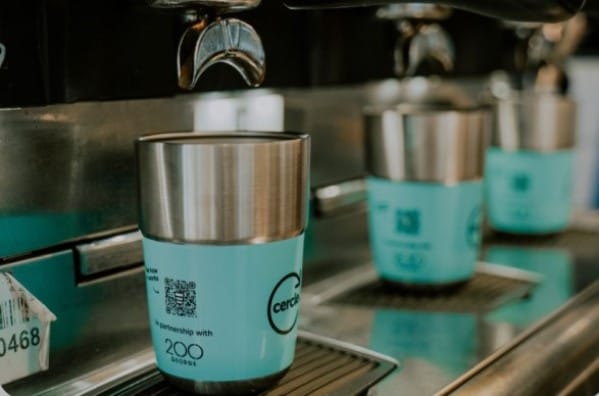Brewing up a cup-change
These Australian workplaces are ditching takeaway coffee cups in favour of a circular model.

The issue with disposable coffee cups is hardly news anymore - they’re everywhere, and they’re tough to recycle because of the thin plastic lining that keeps them water tight.
Every year, Australia sends about 1.8 billion of these non-biodegradable coffee cups to landfill. Now, regulators are targeting this waste as part of a national push to reduce single-use plastics.
In Western Australia, for instance, disposable plastic coffee cups and lids are on track to be phased out by year’s end. The Queensland Government has launched an initiative called Beyond Cups to address the single-use coffee cup problem and find practical ways to reduce this waste.
So what will replace them? Reusable keep cups, while popular, come with challenges. Many people forget to carry them, and during the COVID-19 pandemic, they were often banned as a health precaution.
A new 'precinct reuse' model could be a solution. Under this system, customers can pick up coffee in a reusable cup and return it to a designated drop off spot to be professionally washed, making for a more convenient and hygienic experience for both consumers and cafes.
"Our vibrant blue Cups and Drop Pods aren't just eye-catching; they're designed to create a new visual language for reuse"
One company leading this effort is Cercle, which has developed a returnable cup system for workplaces and events. Customers receive their coffee in a Cercle cup, and once they’re done, they drop it off at a designated Drop Pod. Cercle then collects the cups, professionally cleans them, and returns them to cafes for reuse.
Since its launch in April 2021, Cercle says it has already prevented more than 575,000 disposable cups from ending up in landfills.
Cercle’s system was recently introduced at Brisbane’s 6 Star Green Star-certified Heritage Lanes building in partnership with the Queensland Government’s Beyond Cups Challenge.
This pilot program includes an on-site washing facility, which helps cut down on transport emissions, reducing the system’s overall carbon footprint. It says that in just three months, this initiative kept over 20,000 disposable cups out of the waste stream.
Out of landfill
Cercle also operates in Melbourne’s Olderfleet building, where a collaboration with Sustainability Victoria has kept over 83,000 single-use cups out of landfills in just one year.
"Our vibrant blue Cups and Drop Pods aren't just eye-catching; they're designed to create a new visual language for reuse," the company says.
"In a world where convenience often trumps sustainability, we're making reuse more convenient by using visible, intuitive, and effortless messaging."
Other players in the reusable cup market include Huskee, which adds spent coffee husks to its keep cups. Huskee launched its cup-swapping program, HuskeeSwap, about five years ago across a network of cafes.
Recently, Huskee was acquired by eco-packaging company BioPak. Another swap-and-go company, Green Caffeen, also operated in this space with an app-based borrowing model, although it ceased operations last year.
Cercle's mission is to create the "hassle free reusable cup of the future". The company recently launched two new Australian-made Drop Pods - Drop Pod Metal which is strong and study and Drop Pod Lite which is made from 50% post consumer plastic. Cercle Lite, a new cup addition to Cercle's reuse system, has also now been launched. This cup was designed by UK-based Circular&Co which Cercle has partnered with. The cup is based on two years of research and is ergonomic and lightweight and has embedded RFID tech for real time tracking and reporting.





